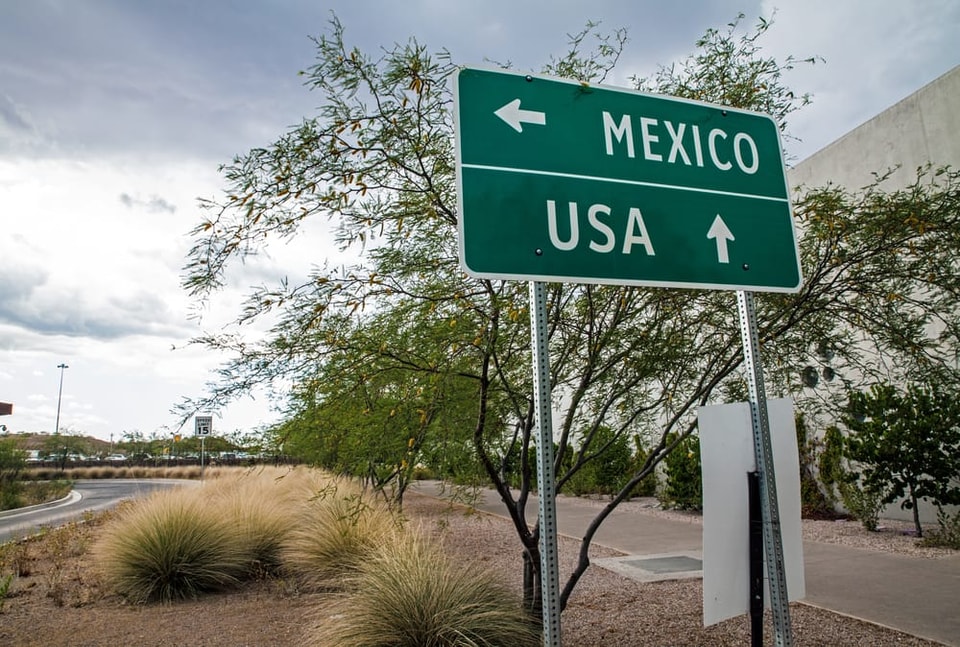Memo Published August 22, 2019 · 5 minute read
What's the Impact of Decriminalizing Border Crossings?
Nathan Kasai & Lanae Erickson

Before the first Democratic primary debates in June, almost no one in America knew what “Section 1325” meant. That week, Julián Castro elevated this previously obscure line of American immigration law to become one of the centerpieces of the immigration reform debate—and pushed every one of his fellow candidates to embrace his proposal to repeal it. But what does this law really do, and what would happen if we took it off the books? Not much. Section 1325 isn’t the root of our immigration problems, and repealing it would neither be the disaster immigration hardliners allege or the panacea proponents of that policy change claim.
What is Section 1325?
Section 1325 is one of a number of laws that is used to prosecute those who enter our country without a legal right to do so. Specifically, Section 1325 makes it a misdemeanor offense to cross the U.S. border without authorization, and a conviction under this law can carry up to a 6-month prison sentence.1 There are other laws that carry serious penalties for crossing the border or other actions along the border:
- Section 1323 creates a $3,000 fine per person unlawfully transported across the border.2
- Section 1326 makes illegal reentries into the country by anyone who has previously been deported or denied admission to the U.S. a felony.3
- Section 1327 makes it a crime to aid or abet anyone crossing the border unlawfully and carries up to a 10-year prison sentence.4
- Section 1544 punishes the misuse of a passport with up to a 10-year sentence for a first offense (more if it is combined with drug trafficking).
- Section 1546 criminalizes fraudulent or counterfeit visa or permit use and has up to a 10-year sentence for a first offense (again, longer if combined with drug trafficking).5
- Section 1001 generally criminalizes fraudulent statements made to government officials. It’s been used in immigration cases and carries an 8-year sentence.6
So criminal laws in this area abound. But criminal prosecution is far from the only method of handling someone crossing the border without authorization. We also have an entire system of immigration courts that adjudicate removal cases outside of the criminal justice system. That is why for most of our history, Section 1325 and other immigration-related criminal statutes were rarely used.7 The immigration system handled these cases, and people were deported. If they had been prosecuted instead, taxpayers would foot the bill for their imprisonment, only to send them home after they finish their sentence.
In fact, even during the Trump administration, only a small proportion of undocumented immigrants who have been apprehended at the border each month have been charged with violating Section 1325. In 2018, roughly 18,000 people were charged with violating it, while there were nearly 400,000 apprehensions at the southern border.8
Another reason Section 1325 is used rarely is the separate set of laws that deal with people seeking asylum—those who are petitioning through a legal process to live in this country due to a credible fear of harm in their home nation. Our asylum laws are explicit: the right to apply for asylum is open to anyone fleeing persecution, regardless of how they enter the country.9 If a person crosses the border without authorization and successfully applies for asylum, they should not be prosecuted under Section 1325.
What Would Repealing Section 1325 Change?
Undocumented Border Crossings
Although the discussion about repeal of Section 1325 was seen as a pivotal moment in the debates, the truth is that repealing it would do very little. Taking Section 1325 off the books would not open American borders to uncontrolled immigration or grant the right to enter the country to anyone who wants it. It would simply mean those entering without authorization would be deported using the civil immigration process, rather than using the criminal system to first convict them for a low-level misdemeanor offense and then deport them.
Moreover, repealing this section would leave on the books the other crimes mentioned above. Castro’s proposal would still allow prosecution for re-entering the U.S. without authorization, as well as a myriad other offenses.10
Family Separation and Detention
While Section 1325 was used as the initial excuse for Trump’s horrific family separation policy in 2017, the administration has since changed its legal tactics many times.11 Recently, rather than prosecute every immigrant arriving at the border under 1325, Trump has focused on metering at ports of entry, forcing asylum applicants to wait in Mexico, and attempting to bar Central Americans from even petitioning for asylum. Repealing Section 1325 would take away one thin legal reed for Trump’s cruelty, but his administration has proven adept at finding new ways to twist our laws into inhumane and un-American policies at the border.
Repealing Section 1325 also wouldn’t stop Trump from detaining immigrants in deplorable conditions.12 In fact, there are sections of our asylum laws that he could use to detain those who are seeking asylum with or without Section 1325—which means he could still separate families. Section 1225, for example, allows the government to detain people who are going through the asylum process while their cases are being considered.
Section 1325 didn’t cause family separation—Trump did. And repealing it won’t stop this barbaric practice.
Conclusion
The call to repeal Section 1325 is actually a narrow proposal that would leave our immigration enforcement system largely intact. Its repeal will not create an open border, but neither is it a silver bullet to fix our immigration challenges or end Trump’s cruelty.
Two things will ensure our immigration system better reflects our values. The first is defeating Trump in 2020, ending his power to use the U.S. Code as a brutal tool in his nativist crusade. Then we need address our broken immigration system and enact lasting reforms that make the process humane, fair, and efficient moving forward.

